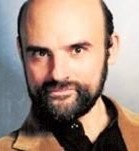25 Μάι Ομιλία: Γεωγραφική Πληροφορία και Γεω-Πληροφόρηση: Πολυπλοκότητα, Big Data και Μελλοντικές Προοπτικές
Σας προσκαλούμε να παρακολουθήσετε την ομιλία του Δρ. Φοίβου Παπαδημητρίου με τίτλο «Γεωγραφική Πληροφορία και Γεω-Πληροφόρηση: Πολυπλοκότητα, Big Data και Μελλοντικές Προοπτικές» την Τρίτη 7 Ιουνίου και ώρα 12 το μεσημέρι στην αίθουσα Κ7.303.
Σύντομη περιγραφή του περιεχομένου της ομιλίας καθώς και το αναλυτικό βιογραφικό του ομιλητή παρατίθενται στην παρούσα πρόσκληση.
Γεωγραφική Πληροφορία και Γεω-Πληροφόρηση:
Πολυπλοκότητα, Big Data και Μελλοντικές Προοπτικές
Με την πρόοδο των τεχνολογιών, γίνεται ολοένα και περισσότερο φανερό ότι είναι σημαντικό και απαραίτητο το να γνωρίζουμε και τα γεωγραφικά στοιχεία που αφορούν σε μη-γεωγραφικά δεδομένα, καθώς έτσι μπορούμε να παρακολουθούμε τις μεταβολές τους στο χώρο. Προσθέτοντας όμως χωρικά χαρακτηριστικά ή/και γεωγραφικές ιδιότητες σε μια βάση δεδομένων, αυξάνονται οι απαιτήσεις σε υπολογιστική ισχύ και μνήμη (προκειμένου να είναι εφικτή η γρήγορη ανεύρεση, ανάλυση και διαχείριση πληροφοριών από αυτήν), και έτσι προκύπτουν πρακτικά και θεωρητικά ζητήματα σχετικά με τη διαχείριση της «πολυπλοκότητας» αλλά και των “big data” που δημιουργούνται από τα γεωδεδομένα. Παράλληλα, τίθενται θέματα όχι μόνο διαχείρισης των γεωγραφικών πληροφοριών, αλλά και γεω-πληροφόρησης του κοινού από αυτές (θέματα ανοικτότητας, πρόσβασης, απορρήτου, προτυποποίησης κ.ά).
Φοίβος Παπαδημητρίου
 Born in Athens, he graduated from the University of Athens (B.Sc. with “Excellent” and nation-wide “top first”) and obtained an M.Sc. from the University of Athens, an M.Sc. from the C.I.H.E.A.M. (Paris) and an M.Ed. from the Hellenic Open University. He holds a Ph.D. from the University of Budapest and a second Ph.D. from the University of Oxford.
Born in Athens, he graduated from the University of Athens (B.Sc. with “Excellent” and nation-wide “top first”) and obtained an M.Sc. from the University of Athens, an M.Sc. from the C.I.H.E.A.M. (Paris) and an M.Ed. from the Hellenic Open University. He holds a Ph.D. from the University of Budapest and a second Ph.D. from the University of Oxford.
Having conducted several scientific, professional, and technical collaborations with Universities in different countries of Europe and America, his works have been published in peer-reviewed journals, in book chapters by major scientific
publishers (Springer, Cambridge UP, Kluwer, Wiley), as well as in 200 other publications in 20 countries.
Among his main contributions to science are new mathematical and algorithmic methods, models and formulas for measuring and comparing landscape complexity and spatial complexity; these methods can be applied to analyze any geographical area or spatial entity (i.e. maps, photographs, landscapes, images) and for this reason, they have been cited in studies conducted in diverse geographical settings, from tropics and deserts to Tibet and Antarctica, as well as in studies related to industrial applications (computation, microelectronics, medical diagnostics, etc). Besides these, he has contributed new theories to geographical education and cyber-geography.
His scientific publications have been cited by researchers from 70 countries.
He has taught courses at public universities for several years. He has also worked as an Expert Evaluator and, in this capacity, he has carried out more than 1500 evaluations for various national-and-E.U. programs related to vocational training, scientific research, development, and ICTs.
To date, he has peer-reviewed submissions for more than 30 international scientific journals and has been awarded certificates of “Excellence in Reviewing” by some of Elsevier’s highest-impact journals (JCR-Q1). After holding appointments as a member of the editorial boards of various international scientific journals, he currently serves on the boards of the journals “Mathematics” (JCR-Q1), “Symmetry” (JCR-Q2), “Computational Ecology and Software” (ISI), while, during the last 20 years, is a member of the Editorial Board of the “International Research in Geographical and Environmental Education” (SJR-Q2, published by Taylor & Francis and under the auspices of the International Geographical Union).
Aside from his academic interests, Fivos has a long-term engagement in music, literature, and visual arts, by participating with his artworks in exhibitions of photography and painting and by publishing essays, art critiques, and short stories (for which he has received distinctions in contests).
He has been awarded prizes, grants, international research fellowships, invitations as a keynote speaker at international scientific conferences, as well as honorary appointments (i.e. by the Russian Academy of Sciences, the Institute of Geography of the Organization of American States, and other scientific institutions).
His last researches had focused on the development of a first unified mathematical/algorithmic theory of spatial complexity and the first theory of spatial entropy (he is the author of the books “Spatial Entropy and Landscape Analysis” and “Spatial Complexity: Theory, Mathematical Methods and Applications” – both published by Springer).



